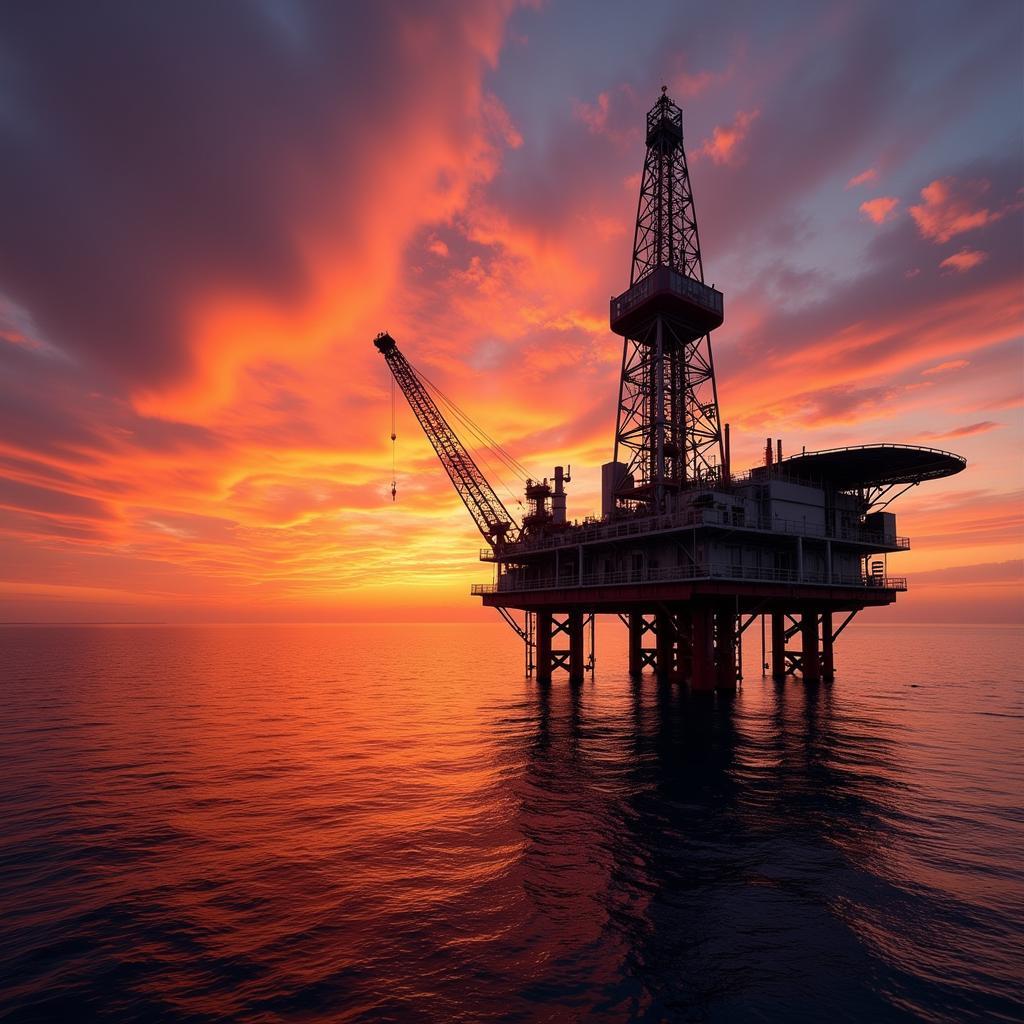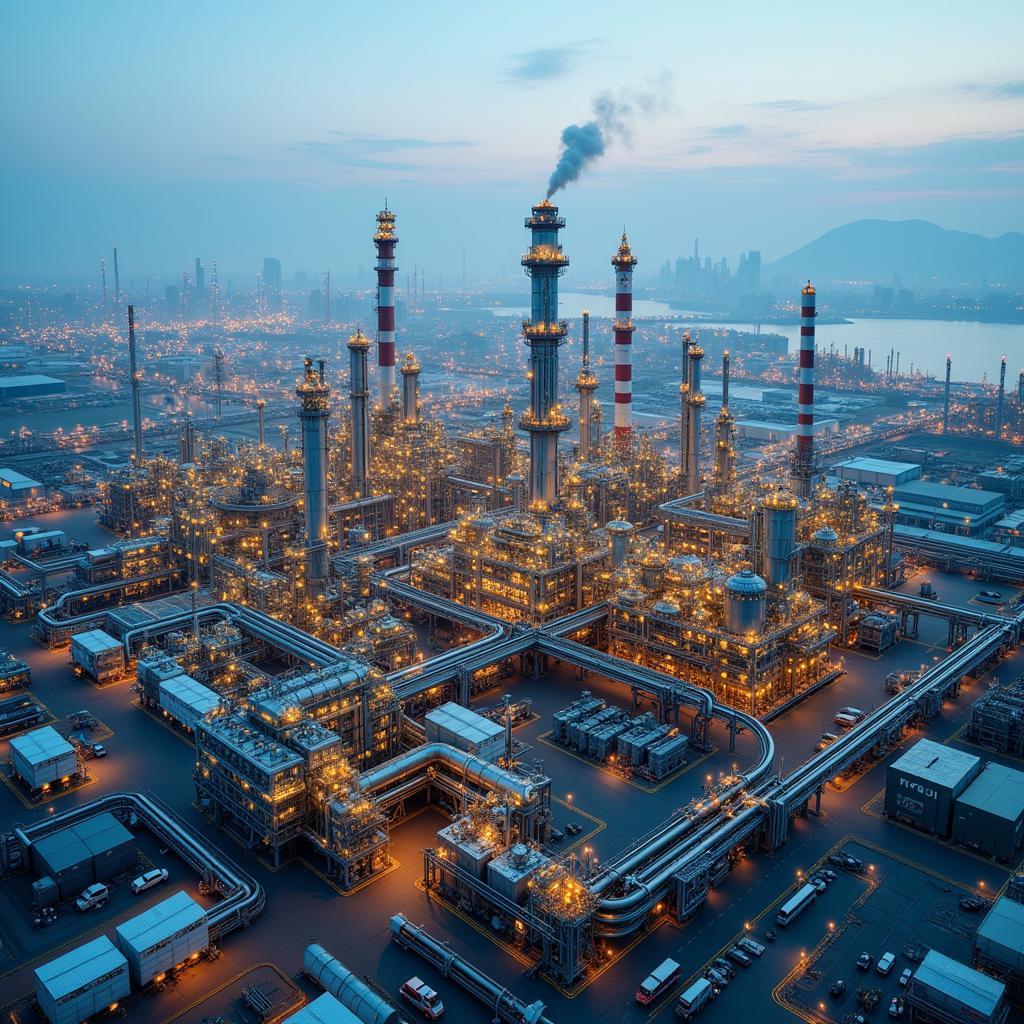Crude oil, often referred to as “black gold,” is a naturally occurring, unrefined petroleum product found in geological formations beneath the Earth’s surface. It’s a complex mixture of hydrocarbons of various molecular weights and other organic compounds, making it a vital resource for numerous industries worldwide. This paper delves into the multifaceted aspects of crude oil, covering its formation, extraction, refining, global impact, and future trends.
Formation of Crude Oil: A Journey Through Time
The genesis of crude oil lies in the decomposition of ancient organic matter, primarily marine organisms like algae and plankton, accumulated over millions of years in sedimentary basins. These organic remnants, subjected to intense heat and pressure in the absence of oxygen, undergo complex chemical transformations, ultimately forming crude oil and natural gas.
Factors Influencing Crude Oil Formation:
- Abundant Organic Matter: Regions with high biological productivity in the past tend to have larger oil reserves.
- Temperature and Pressure: Optimal heat and pressure conditions are crucial for the transformation of organic matter into hydrocarbons.
- Geological Structures: Suitable geological formations, like traps and reservoirs, are necessary to contain and preserve the accumulated oil.
Extraction and Production: From Reservoir to Refinery
The extraction of crude oil from subterranean reservoirs is a complex engineering feat involving various techniques, primarily drilling and well completion. Once extracted, the oil is transported via pipelines, tankers, or other means to refineries for processing.
Key Extraction Methods:
- Vertical Drilling: Traditional method involving drilling a vertical wellbore to reach the oil reservoir.
- Horizontal Drilling and Hydraulic Fracturing: Modern techniques allowing access to previously unreachable oil and gas trapped in shale formations.
- Offshore Drilling: Extraction of oil from reservoirs located beneath the ocean floor, utilizing specialized drilling platforms.
 Offshore Oil Drilling Platform
Offshore Oil Drilling Platform
Refining Crude Oil: Unlocking Its Hidden Value
Crude oil, in its raw form, holds limited use. Refining is a multi-stage process that transforms this complex mixture into usable products such as gasoline, diesel, kerosene, asphalt, and various petrochemicals.
Key Refining Processes:
- Fractional Distillation: Separation of crude oil components based on their boiling points.
- Cracking: Breaking down large hydrocarbon molecules into smaller, more valuable ones.
- Treating: Removal of impurities and enhancement of product quality.
 Crude Oil Refinery Operations
Crude Oil Refinery Operations
Global Impact of Crude Oil: An Economic and Geopolitical Linchpin
Crude oil is the lifeblood of the global economy, powering transportation, industry, and countless aspects of modern life. Its unequal distribution and fluctuating prices have significant geopolitical implications, shaping international relations, trade, and conflicts.
Crude Oil and the Global Landscape:
- Energy Security: Access to reliable and affordable oil supplies is paramount for national security and economic stability.
- Environmental Concerns: Extraction, transportation, and consumption of oil contribute to greenhouse gas emissions, pollution, and environmental degradation.
- Economic Volatility: Fluctuations in oil prices can significantly impact global economic growth, inflation, and financial markets.
Future of Crude Oil: Navigating a Changing Energy Landscape
The future of crude oil is intertwined with the global shift towards renewable energy sources and a low-carbon economy. While its dominance is projected to decline, crude oil will likely remain a crucial resource for the foreseeable future.
Trends Shaping the Future:
- Renewable Energy Growth: Increasing adoption of solar, wind, and other renewable energy sources is gradually reducing reliance on fossil fuels.
- Technological Advancements: Innovations in oil exploration, production, and refining are improving efficiency and mitigating environmental impact.
- Geopolitical Shifts: Evolving geopolitical alliances and energy policies will continue to shape the global oil market.
Conclusion
Crude oil, a finite resource with a profound impact on human civilization, is at a crossroads. As the world transitions to a more sustainable energy future, understanding the multifaceted aspects of crude oil remains crucial. From its formation over millennia to its role in shaping global dynamics, crude oil continues to be a subject of immense scientific, economic, and geopolitical significance.
FAQs about Crude Oil:
-
What are the main uses of crude oil?
Crude oil is primarily used to produce fuels like gasoline, diesel, and kerosene, as well as asphalt and various petrochemicals used in manufacturing. -
How long will global oil reserves last?
Estimating the exact lifespan of global oil reserves is complex and subject to ongoing debate, but most estimates suggest several decades of remaining reserves at current consumption rates. -
What are the environmental consequences of oil spills?
Oil spills can have devastating impacts on marine life, coastal ecosystems, and human health, often requiring extensive cleanup efforts and long-term ecological restoration. -
What are the alternatives to crude oil as an energy source?
Renewable energy sources like solar, wind, hydro, geothermal, and biomass offer sustainable alternatives to crude oil. -
How do geopolitical factors influence the price of crude oil?
Political instability, conflicts, and production agreements among oil-producing nations can significantly impact global oil supply and prices.
For any inquiries or assistance, please don’t hesitate to contact us:
Phone: 0904826292
Email: research@gmail.com
Address: No. 31, Alley 142/7, P. Phú Viên, Bồ Đề, Long Biên, Hà Nội, Việt Nam.
Our dedicated customer support team is available 24/7 to assist you.